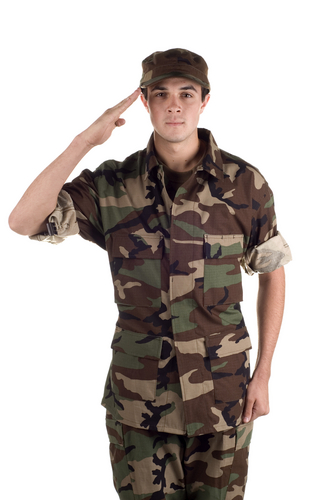
A nation held its breath. There were 366 blue plastic capsules containing birth dates waiting to be chosen from a large glass jar at Selective Service National Headquarters in Washington, D.C., on Dec. 1, 1969.
The drawing determined the draft order that would begin the following year making all eligible men between the ages 18 and 26 potential draftees for the Vietnam War. Sept. 14 was the first date drawn, and it continued until each birth date was assigned a lottery number. It was the first time since 1942 there had been a draft lottery.
Abolished by Nixon in 1973, it is unlikely that a draft will return in the near future. After 10 years and two wars, the all-volunteer military is managing the fight overseas. But the war at home, the public’s stake in the war has been far less engaging.
Those with loved ones in the military couldn’t be more committed, knowing the person they love is in harm’s way. But for those who don’t have a direct connection, the war is a far-away conflict that can be viewed from the safety of our homes. There is little concern, little sharing of the burden, and it’s easy to forget the sacrifice so many Americans are making for their country. What would a draft mean for this country and those serving in the armed forces?
Despite the opposition to the draft, Democrat Charles Rangel proposed a Universal Service Act to the House of Representatives in 2003. It would have required “that all young persons [18- 26] in the United States, including women, perform a period of military service or a period of civilian service.”
The results of the vote were two in favor and 402 against.
Bring Back the Draft, an opinion piece written by Rangel in the The New York Times, explains why he introduced his bill.
“I believe that if those calling for war knew that their children were likely to be required to serve — and to be placed in harm’s way — there would be more caution and a greater willingness to work with the international community in dealing with Iraq,” Rangel wrote. “A renewed draft will help bring a greater appreciation of the consequences of decisions to go to war.”
Rangel was openly opposed to the war, voting against the Congressional resolution that gave President George W. Bush the authority to declare it. The bill he proposed was to not only send the message that conflicts would be handled more delicately if the general population had an equal stake in the conflict, but that if there was a draft, we’d all have to share the burden of the conflict. A majority of people would be directly connected to the war.
Larry Smith, a Vietnam veteran living in Bettendorf, Iowa, was drafted as a field medic and witnessed both the positive and negative effects of the draft’s implementation.
“The bad side of an all-volunteer army is that the suffering is done by just a few people on a few families,” he says. “A majority of the people in our country aren’t touched by it. Whereas in Vietnam, somewhere in your extended family you had someone that was in Vietnam who had suffered.”
According to a Pew Research Center study, one half of 1 percent of American adults has served on active duty. This is the smallest percentage of Americans since the peacetime between World War I and World War II. For the past 10 years, we have put the weight of the wars on the shoulders of less than half of 1 percent of our adult population, a severely unbalanced proportion that makes it easy for many Americans to forget the war in their day-to-day life.
“A lot of people are just disconnected from Afghanistan and Iraq; it doesn’t affect them, and even the money that’s wasted,” says Smith. “The people hear about it, but it kinda goes in one ear and out the other.”
The question remains whether a draft would have affected the initial decision to go to war with Iraq. According to a PIPA/Knowledge Networks Poll dated March 31, 2003, 54 percent of Americans supported the president’s decision to invade Iraq despite not getting clearance to do so from the United Nations Security Council. The presence of a draft likely would have made that percentage significantly lower.
While a draft would create a greater connection between the general public and the conflict the military is involved in, it would come with a price. Besides being unpalatable for “forcing” some of our citizens to serve, the quality of our armed forces would likely suffer.
“The volunteer army is a much better army than the draft army,” says Smith. “Today, with a volunteer army, you have people that want to be there, you have people usually that are doing something that they want to do within that structure. They like the structure of the military. I think I was glad when the draft was eliminated.”
And some wars are more justifiable than others.
“During World War II, the country worked as a team, people stepped up,” Smith says. “It didn’t matter if you were drafted, people volunteered during World War II because they knew the enemy was evil; it was very, very well-defined.”
We shouldn’t need a draft to constantly remind us of the sacrifice our soldiers are making for our country, but in reality, it’s effective at doing just that.
Without a draft, it’s easy to forget that if one American is at war, we’re all at war.
Respond: [email protected]














